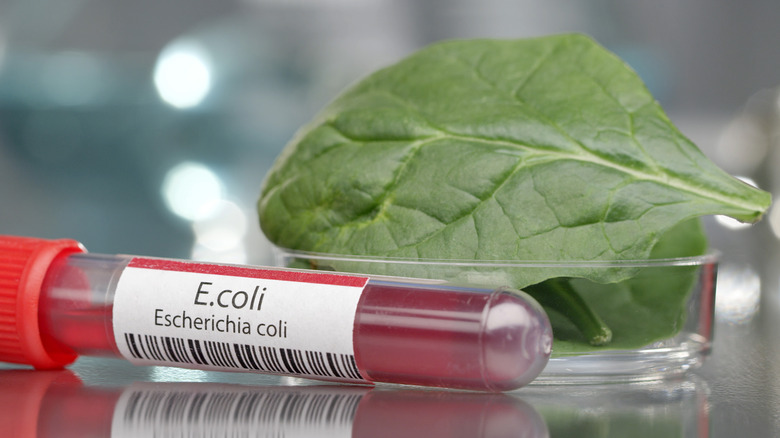Here's How You Can Prevent E. Coli
E. coli, or Escherichia coli, are bacteria that can be found almost everywhere. According to the Centers for Disease Control and Prevention (CDC), they live in the environment, on food, and even in your intestines. There are many types of E.coli and most of them are harmless. However, some strains of the bacteria can make you very ill when they are consumed.
Symptoms of an E. coli infection include cramping, nausea, fever, gas, and diarrhea that may be bloody. Severe cases can include bloody urine, dehydration, bruising, and pale skin (via Healthline). Generally, symptoms of an E. coli infection improve within five to seven days.
Most of the time, E. coli infection comes from handling food in unsanitary conditions. Unclean water and unwashed fruits and vegetables can harbor E. coli. Undercooked meat and raw milk can also be a source of the bacteria. In addition, E. coli can be spread from person to person.
Practice good food hygiene
To prevent E. coli infection, you should always make sure that you wash any fruits and vegetables, especially if you plan on eating them raw. In addition, any meat should be cooked thoroughly. The U.S. Department of Agriculture suggests using a food thermometer to ensure that meat and poultry are properly cooked. Beef, pork, ham, fish, shellfish, and lamb should be cooked to 145 degrees Fahrenheit. Ground meats and eggs should be cooked to 160 degrees, and poultry (including ground poultry), leftovers, and casseroles should be cooked to 165 degrees.
Raw meat should always be kept separate from other foods, and leftovers should be refrigerated as soon as possible. You should also make sure the source of water you are using is clean and safe.
Other precautions you can take include keeping your hands and your food prep area clean. Healthline points out that cross-contamination can occur when you use utensils, cutting boards, and dishes that are contaminated. Since E. coli can be passed from person to person, the World Health Organization suggests washing your hands regularly, especially if you work around children, elderly, or those who have compromised immune systems.


